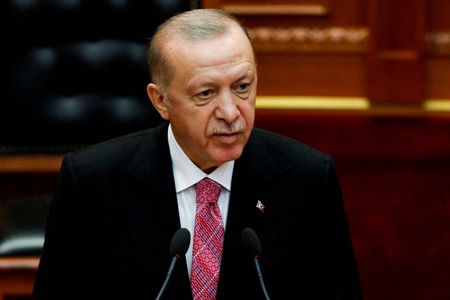
Turkey’s Erdogan threatens media with reprisals over ‘harmful’ content

ANKARA (Reuters) – President Tayyip Erdogan on Saturday threatened Turkish media with reprisals if they disseminated content that damaged the country’s core values, in a move that might be a prelude to further censorship in the sector.
In a notice published in the Official Gazette, he said measures were needed to protect Turkey’s “national culture” and prevent its children’s development “from being adversely affected as a result of exposure to harmful content on all written, verbal and visual media.” Erdogan did not specify what such content was, but said legal action would be taken against “overt or covert activities through the media aimed at undermining our national and moral values and disrupting our family and social structure.”
Erdogan has been in power for nearly 20 years and has often criticised media content that is out of step with the conservative Islamic values espoused by his AK Party. Turkey has in recent years also moved to increase media oversight, with around 90% of major media now owned by the state or close to the government. Its western allies and critics have said Erdogan has been using a 2016 failed coup attempt to muzzle dissent and erode social rights and tolerance.
The government has denied this, saying the measures are necessary due to the gravity of the threats Turkey faces and that freedom of religious expression has been restored in a once strongly secular republic. The RTUK radio and television watchdog has sweeping oversight over all online content, which it also has the power to remove. It has fined TV stations over footage it says violates Turkish values, such as music videos it has labelled “erotic”, LGBTQ references or content it deems to have insulted the president.
Tens of thousands have been prosecuted under the latter law including Sedef Kabas, a well-known journalist jailed last week pending trial after posting a proverb about Erdogan’s palace on her Twitter account and repeating it on opposition television channel.

















POST COMMENTS (0)